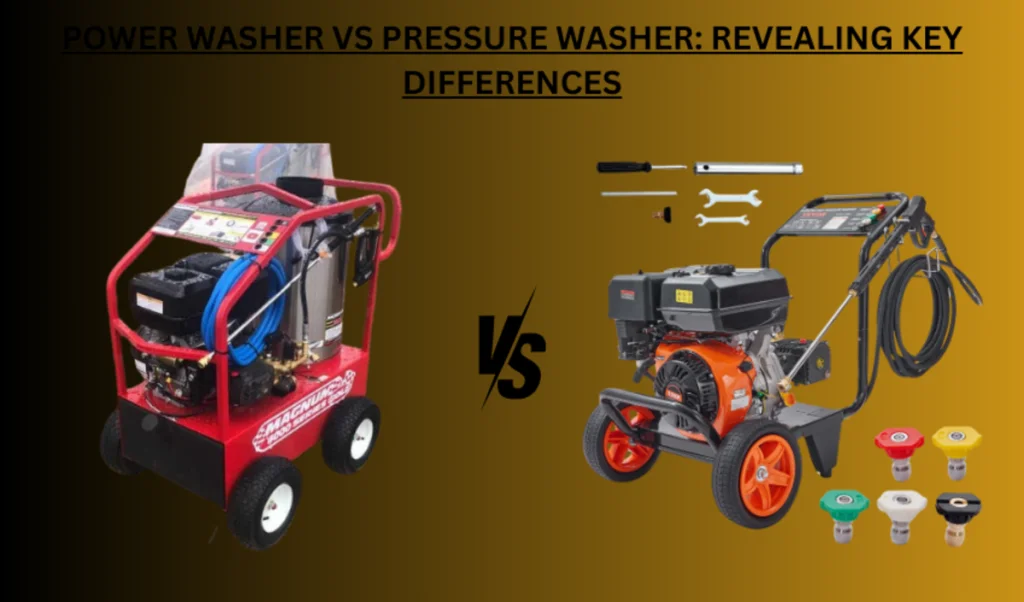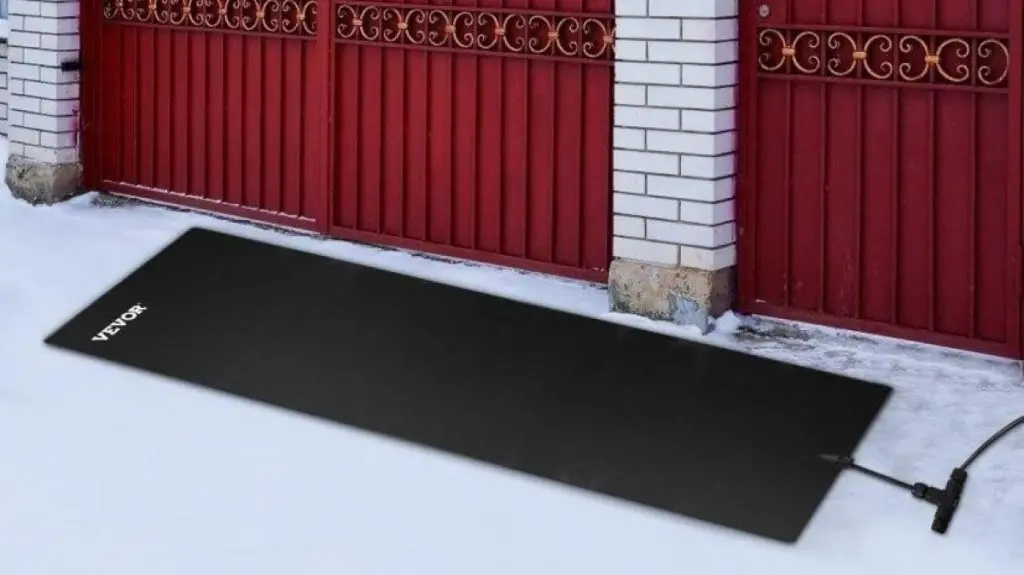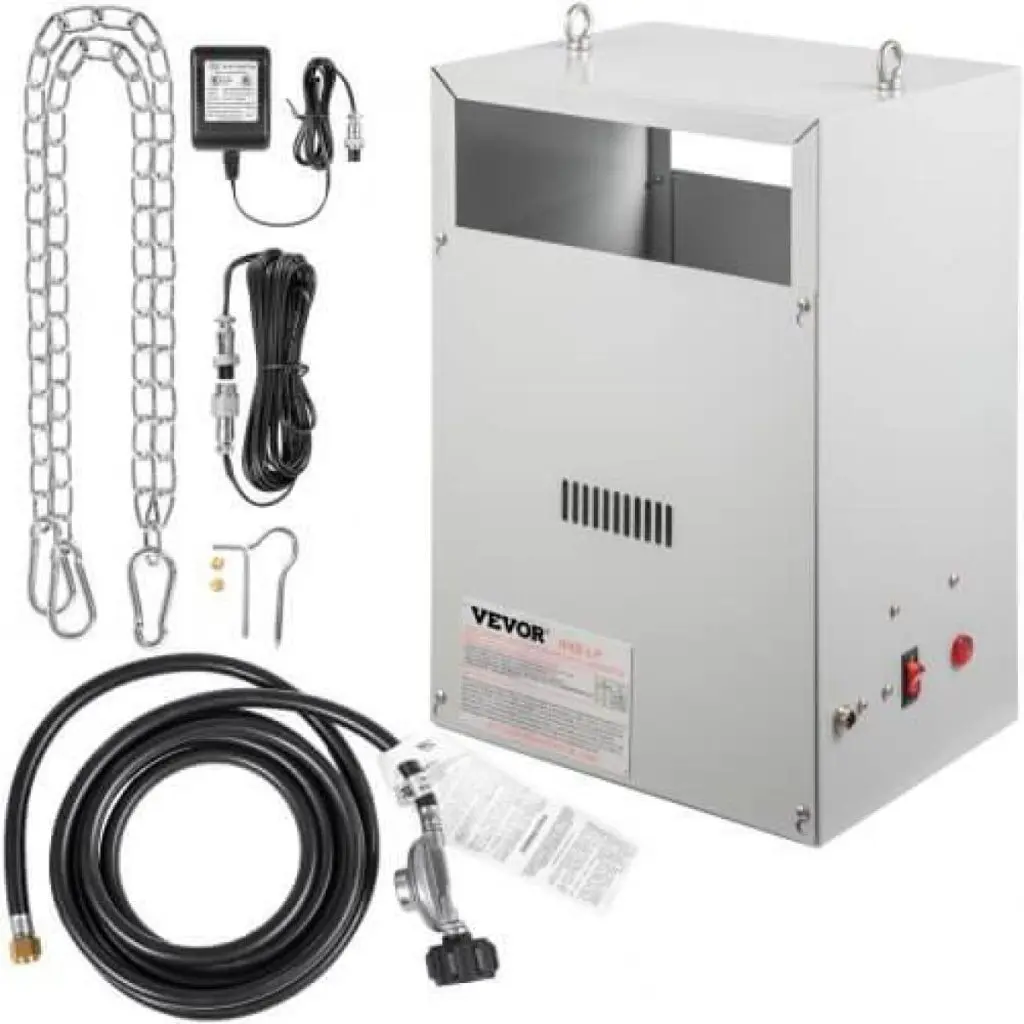Introduction
Are you sick and tired of fighting the annoying grime with your surfaces? Not sure if a power washer vs pressure washer is more efficient? Are you eager to get insights on which one you should choose? The decision depends on the task in question. For grease or oil, you might need a pressure washer. Nevertheless, a pressure washer should be enough for regular cleaning and maintenance. Hang in there as you get insights on comparing them and help you to make an appropriate decision.
Table of contents
Brief Overview On Power Washer
The power washer refers to a cleaning tool that uses hot water under high pressure to clean surfaces effectively. Enjoy complete control of the pressure and temperature as per your requirements.
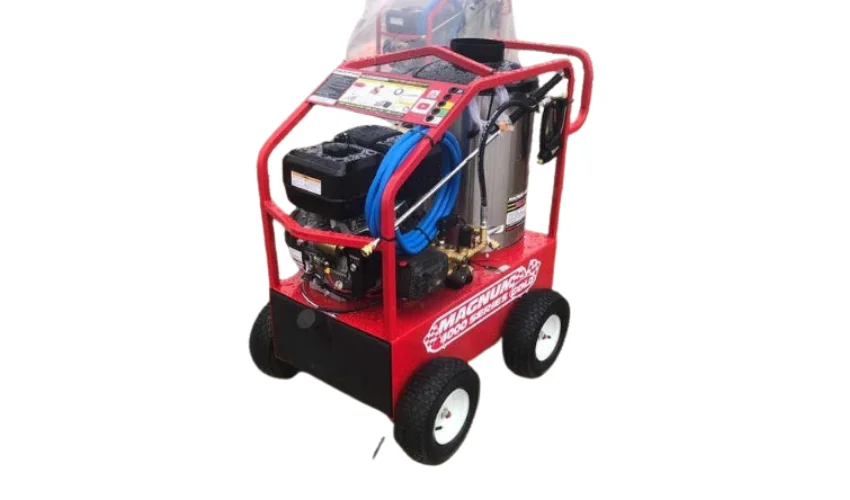
Upon pushing the button, water moves through the heater and becomes hot. Next, hot water is released through a high-pressure nozzle, eliminating dirt and grime.
The nozzle, pump, hose, heating element, and wand are notable components. A pump or power washer pressurizes the water, and the heating element adds heat. The power washer hose takes the water from the source and directs it to the pump. A wand controls the angle of the spray. Nozzle play a key role in defining the shape and density of the spray. You can clean different surfaces with a power washer.
Brief Overview On Pressure Washer
It is a remarkable cleaning device that utilizes high-pressure water for cleaning grime and dirt. You can clean different surfaces with this washer, such as the driveway and cars.
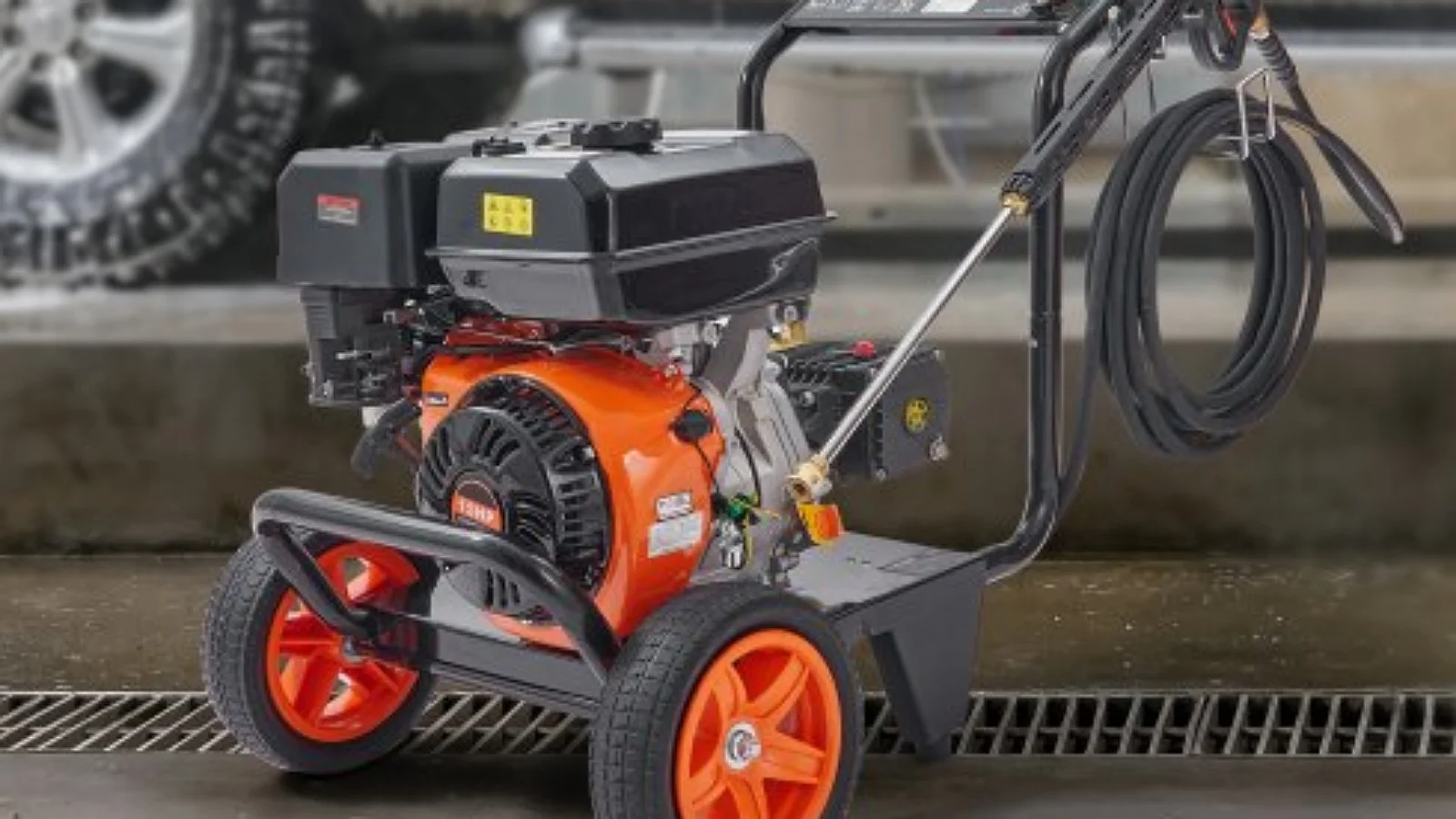
When you pull the trigger, the water moves with the help of a pump and motor. Later, it passes through the hose and out of the nozzle at high pressure. The powerful jet washes away dirt and stains.
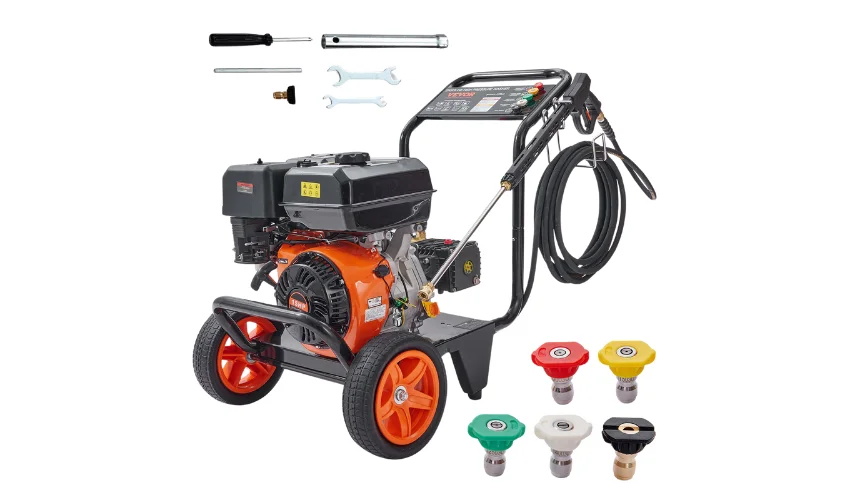
The components that make up this washer are a hose, wand, pump, motor, heating element, and nozzle. A motor plays a vital part in pressurizing the water. In comparison, a high-pressure hose takes the water from the pump to the spray wand. Please note, the spray wand points the pressurized water onto the cleaned surface. The flexibility and efficiency of the pressure washer is unquestionable.
Power Washer Vs. Pressure Washer – Key Differences
Getting familiar with the key differences is highly important, and here are the notable ones:
| Sr. No. | Feature | Power Washer | Pressure Washer |
| 1 | Cleaning Efficiency | Higher | Lower |
| 2 | Cost | Higher | Lower |
| 3 | Applications | Heavy-duty cleaning, greasy surfaces, oil stains, mildew removal, and industrial applications. | Lighter cleaning tasks, loose dirt, mud, paint removal, and general outdoor cleaning. |
| 4 | Safety | Greater caution required | Moderate caution |
| 5 | Environmental Impact | Potentially higher | Potentially lower |
| 6 | Output Power | Variable | Variable |
| 7 | Weight | Generally heavier | Generally lighter |
1) Main Difference – Heating Element:
The heating element in the power washer heats water to reach high temperatures. This hot water then plays a key role in removing grease, oil and other stubborn stains. The heating element runs on electricity. You can increase or decrease the temperature of the water with the help of a heating element.
On the other hand, the pressure washers do not heat water. They rely on the pressure of high-powered water to clean surfaces. Even though this might not be the best choice for oily stains, they are strong enough for other cleaning tasks.
2) Efficiency in Cleaning:
Because of hot water, the power washer dissolves and penetrates tough stains, resulting in faster cleaning. The main reason behind this is that hot water offers more solvent content within the molecular structure. This phenomenon opens up bonding with the detergent thus leading to efficient cleaning.
Meanwhile, the pressure washer just uses unheated water at higher pressures. You have the freedom to clean dirt, mold, mildew, and even grime from various surfaces. They may need more time for hard stains, but they give fantastic cleaning results.
3) Main Application Areas:
Power washers are ideal for challenging cleaning tasks. Main application areas include getting rid of oil stains, industrial equipment cleaning, and surface sanitizing. You can also use it in driveways, walkways, home exteriors, garage floors, etc.
The versatility of pressure washers is incredible. You can clean up cars, decks and patios and remove dirt from siding and fences. The option exists to clean floors, fences, furniture, etc. Pressure washer has wider applicability than power washer. This is because hot water is not suitable for every application.
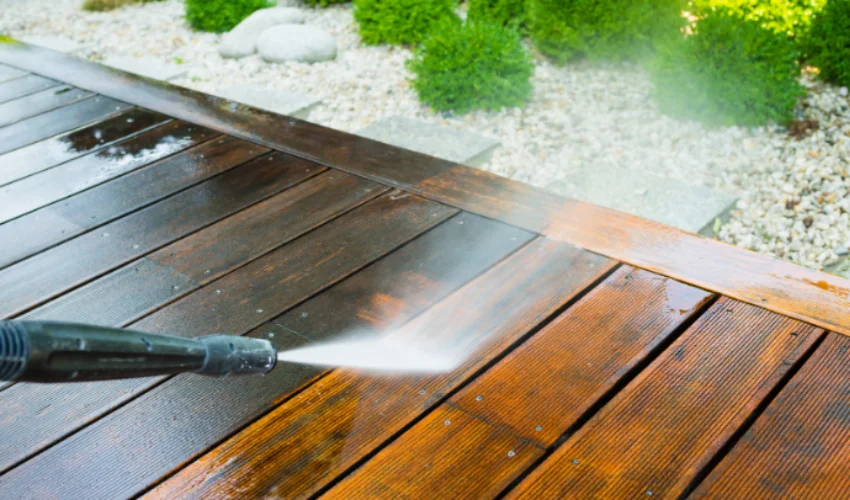
4) Level of Versatility:
Power washers’ versatility level is lower than pressure washers because they rely on hot water. Power washers are for those cleaning tasks that require the use of hot water.
While pressure washers have unquestionable versatility and can be used with different detergents and attachments for various cleaning jobs.
5) Cost:
Because of the extra heating component, the power washers are costlier. But this higher cost can help you save up effort as well as time that you are going to spend on cleaning. You can clean large areas quickly which eventually helps you save up more in the long run.
Pressure washers have a lower cost than power washers. Businesses, as well as homeowners, can easily purchase them for compelling cleaning needs.
6) Safety:
Because of the higher temperatures, power washers can be hazardous. Users should take measures to prevent burns and other injuries.
Upon incorrect usage, the pressure washers can be hazardous. While using the pressure washers, you need to follow safety rules. By following the rules, you can eliminate chances for injuries from the high-pressure water spray.
7) Environmental Impact:
You need more energy and water due to the heating capabilities of the power washer. This increases their environmental impact.
The electrical consumption of Pressure washers is slightly less. Hence, pressure washers are the more environmentally friendly choice for cleaning jobs.
8) Mobility:
The weight of the power washers is heavier and bulkier than pressure washers. This is because of their heating components, which makes them less portable.
In comparison, the pressure washer is usually compact and lighter. You can quickly move it around and transport it to different sites for cleaning.
9) Maintenance:
Heating and other components need maintenance to ensure optimum operation. This could range from cleaning and descaling the heating coil and checking for leaks or damage.
Please note that the pressure washers also need maintenance for filters and nozzles—practice examination for leaks and inspecting hoses and fittings for wear and tear.
Top Key Considerations Before Selecting Pressure Washer Vs. Power Washer
When picking between a pressure washer and a power washer, pay attention to many factors.
Cleaning Needs:
Evaluate the types of surfaces and the degree of grime you will likely deal with. Hot water power washers are much more efficient when cleaning tough stains like oil and grease. However, pressure washers are perfect for general cleaning tasks.
Frequency of Use:
Consider how frequently you will be running the washing machine. You can use the pressure washer for occasional cleaning practices. Moreover, a power washer is more likely to be the better option if you have frequent heavy-duty cleaning requirements.
Accessibility to Power:
Consider if you’ll have access to electricity or not. To run a power washer, make a connection with electricity. In comparison, the pressure washer makes use of gasoline for proper operation. This also gives them more mobility advantages.
Noise Sensitivity:
Assess your noise tolerance. Please note that the heating elements of power washers add noise to these washers, while pressure washers are not more noisy.
Brand Reputation:
It is paramount to search for the reputation of the brand. Selecting a brand with a good reputation prevents you from frequent repairs and maintenance measures. Please note that Choosing a trustworthy and recognized brand will give you peace of mind. This is true in terms of the quality of the product and customer support.
Environmental Concerns:
Weigh the environmental consequences of your decision. The energy consumption for power washers is higher due to their heating function. But pressure washers are generally more energy-efficient.
Budget:
Set a budget and check the costs of both options. The power washer cost is slightly higher than what you will experience with the pressure washer. Consider the long-term costs and benefits of each option.
Storage Space:
Assess your washer’s storage space. Due to the heavy and bulky design, power washers require ample storage space. This is true in terms of heating elements and extra accessories. But unlike the power washers, the latter are usually more compact and more accessible to store.
Gas Pressure Washer
Feel the fantastic cleaning power of a VEVOR Gas Pressure Washer.
3600 PSI High-pressure:
The gas pressure washer features 3600 PSI and support for 2.6 GPM flow. A gas pressure washer is indispensable when you are away from power outlets.
Efficient 7 HP Engine:
Equipped with a 210 ml 4-spoke power engine and 0.8-gallon gasoline capacity, this gas pressure washer is highly preferred due to its effortless startup and copper pump. Great for do-it-yourselfers who appreciate strength and power.
Variety of Usage:
This set has 5 quick-connect metal spray nozzles that can go from strong to light water jets. Because it is suitable for different cleaning tasks and helps prevent unnecessary expenditure.
Effective and Convenient Storage:
A spray gun, 5 nozzles, and a 26 ft abrasion-resistant water hose. It’s conveniently stored on the machine to avoid any loss of parts.
Higher Portability:
It has a robust steel frame, an ergonomic handle, and two 10-inch carts that will never go flat. You can quickly bring it from the front to the back, saving time and moving around less fatigued.
For another variant of pressure washers, consider this one.
| Sr. No. | Parameter | Specs | Parameter | Specs |
| 1 | Item Model Number | BS180D-SP | Max. Pressure | 3600 PSI |
| 2 | Max. Flow Rate | 2.6 GPM | Power | 7HP |
| 3 | Engine Type | 210cc | Gas Tank | 0.8 gal / 3L |
| 4 | Nozzles | 0°/15°/25°/40″ | Hose Length | 26 ft / 8 m |
| 5 | Hose Dia. | 0.5″ / 12.55 mm | Wand Length | 2.6 ft / 81 cm |
| 6 | Wheels Size | 10″ / 25.4 cm | Weight | 58.2 lbs / 26.4 kg |
FAQs
Where should you avoid using a pressure washer?
Do not use the pressure washer on delicate/smooth surfaces, including the shingles or wood. Too much pressure can result in damage. Additionally, do not use it near electrical outlets or wiring to avoid accidents.
What hotness level is associated with a power washer?
The temperature of a pressure washer is variable; however, it usually ranges from 140 °F to 200 °F. This elevated temperature quickly melts tough stains such as grease and oil.
What do you mean by the term “PSI” in pressure washer?
PSI stands for “pounds per square inch” and specifies the pressure output of a pressure washer. It points to how much pressure the water applies to the washed surface. A higher PSI means more cleaning power, but choosing the correct PSI for the task is essential to avoid damage.
Conclusion
Now that you clearly understand the differences between a power washer vs pressure washer, it’s time for action. Invest in a power or pressure washer and forget about those stubborn stains. Whether for your home or business, VEVOR Electric offers reliable products to fit your requirements. Why waste another moment of your time cleaning when you could be relaxing on a shining surface? Boost your cleaning arsenal and make your life simple. Trust VEVOR Electric for dependable power and pressure washers that do the job correctly. Change your cleaning routine & enjoy the satisfaction of a job well done.

